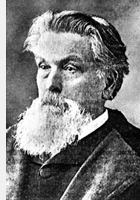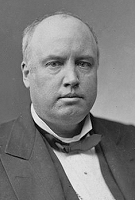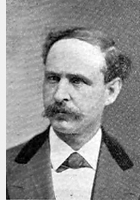Liberal University of Oregon
The Braden-Underwood Debate - 1888
From "The Country Boy" by H.C. Davenport, 1910
The meeting broke up with much excitement and promise, and within a few hours, quite a long telegram, the longest ever sent out of Silverton was on its way East to Col. Ingersoll, and before long a brief one returned saying that Mr. B. F. Underwood was on a train for Silverton as a representative of Col. Ingersoll to debate for ten days with Rev. Clark Braden.
No admission was charged, and the occasion was carried on with much dignity until the last evening's debate, when somebody started something, and when it was over several of the best families in town were on terms unbecoming to neighbors; but even this only lasted a few months and all the differences of a stormy night had passed. The manhood and womanhood that had brought them together during the hardships and trials of a pioneer life, in the covered-wagon days, had brought about a brotherhood that was after all too strong a bond to be broken by even religious whims and differences, and they were soon back together as one big family. All men and women who in their higher spiritual selves were even more religious in the truer form than the minister that had started the trouble, they were genuinely under the atmosphere and living in it that the old blind Arab poet described in his verse written during the eleventh century and saying: "When young, my friends I would defame, if our religious faiths were not the same, but now my soul has traveled high and low, now all save love to me is but a name." I only cite this incident as it was so typical of the place and went to show that the older pioneers of Silverton could start on short notice without even a rehearsal. But, oh, how I loved, and still love Silverton. - Homer C. Davenport, 1909 |





